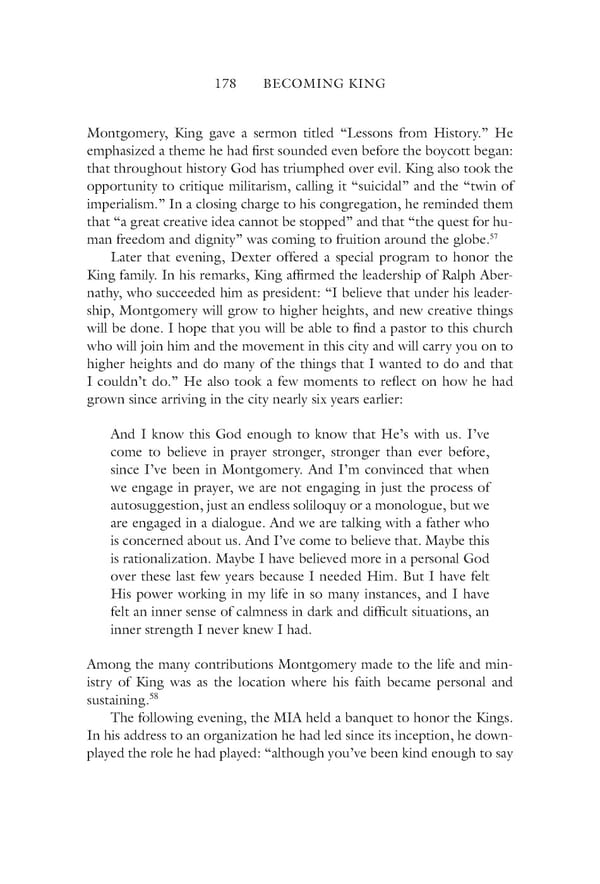178 BECOMING KING Montgomery, King gave a sermon titled “Lessons from History.” He emphasized a theme he had first sounded even before the boycott began: that throughout history God has triumphed over evil. King also took the opportunity to critique militarism, calling it “suicidal” and the “twin of imperialism.” In a closing charge to his congregation, he reminded them that “a great creative idea cannot be stopped” and that “the quest for hu- 57 man freedom and dignity” was coming to fruition around the globe. Later that evening, Dexter offered a special program to honor the King family. In his remarks, King affirmed the leadership of Ralph Aber- nathy, who succeeded him as president: “I believe that under his leader- ship, Montgomery will grow to higher heights, and new creative things will be done. I hope that you will be able to find a pastor to this church who will join him and the movement in this city and will carry you on to higher heights and do many of the things that I wanted to do and that I couldn’t do.” He also took a few moments to reflect on how he had grown since arriving in the city nearly six years earlier: And I know this God enough to know that He’s with us. I’ve come to believe in prayer stronger, stronger than ever before, since I’ve been in Montgomery. And I’m convinced that when we engage in prayer, we are not engaging in just the process of autosuggestion, just an endless soliloquy or a monologue, but we are engaged in a dialogue. And we are talking with a father who is concerned about us. And I’ve come to believe that. Maybe this is rationalization. Maybe I have believed more in a personal God over these last few years because I needed Him. But I have felt His power working in my life in so many instances, and I have felt an inner sense of calmness in dark and difficult situations, an inner strength I never knew I had. Among the many contributions Montgomery made to the life and min- istry of King was as the location where his faith became personal and 58 sustaining. The following evening, the MIA held a banquet to honor the Kings. In his address to an organization he had led since its inception, he down- played the role he had played: “although you’ve been kind enough to say
 Becoming King: Martin Luther King Jr. Page 198 Page 200
Becoming King: Martin Luther King Jr. Page 198 Page 200